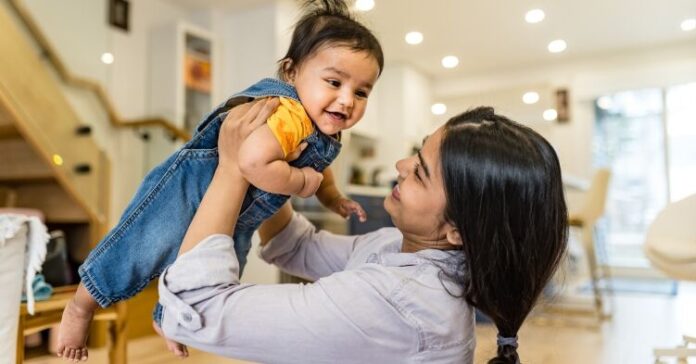Culturally adapted CBT intervention enables faster recovery for British South Asian women suffering from postnatal depression compared to standard treatment, new research shows.
One of the most extensive studies of postnatal maternal mental health support amongst British South Asian women has shed light on new ways that healthcare professionals can offer effective psychological intervention to families.
Researchers from the Universities of Nottingham and Manchester pioneered a new model to recruit, engage and retain participants in the study by using a culturally adapted group cognitive behavioural therapy (CBT)-based intervention known as the Positive Health Programme (PHP). The PHP was delivered by non-specialist health workers and designed specifically for British South Asian women who experience postnatal depression.
As a result of the study published in The Lancet, the researchers have recommended that healthcare policymakers ensure culturally sensitive postnatal depression treatment options are available for British South Asian women.
Current mental health services in the UK underserve British South Asian women. Factors such as language barriers, cultural perceptions of mental health and a lack of culturally sensitive services often prevent women from seeking treatment even though they are more likely to experience mental health issues than White women.
The researchers recruited over 4,000 British South Asian women from across the UK to the study. All participants were 16 years or older, met the DSM-5 criteria for depression, and had infants aged 0–12 months. The researchers assigned the women to either an intervention or a control group. The intervention group underwent the PHP CBT treatment, delivered in a group setting, whilst the control group was offered standard treatment by a GP. Participants were assessed for symptoms of depression at four months and 12 months. The aim was to determine if the group talking treatment worked and whether it offered value for money.
After four months, a significantly higher percentage of people in the PHP group (49 per cent) had recovered from depression compared to the control group (37 per cent). However, by the 12-month mark, the difference between the two groups was no longer significant.
The findings suggest that culturally appropriate CBT intervention can help to speed up the recovery of British South Asian women with postnatal depression and can be used to help researchers and health professionals better understand how to engage in successful treatment.
Professor Richard Morriss, from the University of Nottingham, said: ‘Previously British South Asian women have been under-represented in mental health services for pregnant women and their families run by the NHS. Hopefully, these cultural adaptations might be considered for the British South Asian community in the future so that more women from South Asian communities might benefit.’

